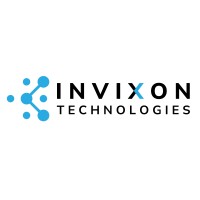Description
The Integration Architect owns and manages the “integration architecture” of the Human Capital Management (Workday) solution. The integration architect is responsible for ensuring that the solution has well-defined interfaces that align and comply with the outlined integration standards and seamlessly integrate and operate as a cohesive environment.
1. Define and develop the HCM integration architecture strategy and an associated roadmap in conjunction with the Integration Center of Excellence team. Map the HCM integration solutions to the architecture blueprint.
2. Define and develop the HCM integration standards to align and comply with industry standards thus allowing for seamless integration with partners, vendors, suppliers, and customers whilst maintaining the highest level of security compliance
3. Support the development of standards-based integration architectures, solutions and patterns that are in alignment with the strategy and roadmap
4. Facilitate, promote, and evangelize the importance of business process orchestration to realize successful integration solutions
5. Demonstrate and provide measurable value of the proposed integration architecture in terms of improved the time-to-market, ROI with the lowest TCO
6. Provide industry technology best practices as a highly seasoned senior professional to multiple project teams through the Solution Delivery Life Cycle (Product and Project Delivery Lifecycles).
7. Act as practitioner and coach of Architecture Processes and Development Methodology.
8. Collaborate with Project Management Office and Service Management leaders to develop a plan to monitor and govern the proposed integrations.
9. Share and communicate ideas both verbally and in writing to management staff, business sponsors, and technical resources in clear and concise language that is easy grasped by the intended audiences.
Skills and Knowledge
1. Demonstrated leadership in a service-oriented matrix organization will be a plus
2. Ability to analyze alternatives and implement systems which are responsive to organizations requirements
3. Demonstrated ability to engage and perform in an outsourced and managed services environment
4. Willingness to furnish top-level advice and consultation concerning policy and security implications for enterprise infrastructure
5. Ability to effectively hire, organize, direct, evaluate and retain a professional staff in the development, implementation, and operation of business technology systems
6. Ability to oversee multiple technology initiatives
7. Excellent consulting, communication, and organizational skills with the ability to influence stakeholders across IT internal and external business
Key Skills
Education
Any Graduate
- Posted On: 30+ Days Ago
- Experience: 5+ years of experience
- Availability: Remote
- Openings: 1
- Category: Dell Boomi Architect
- Tenure: Flexible Position

